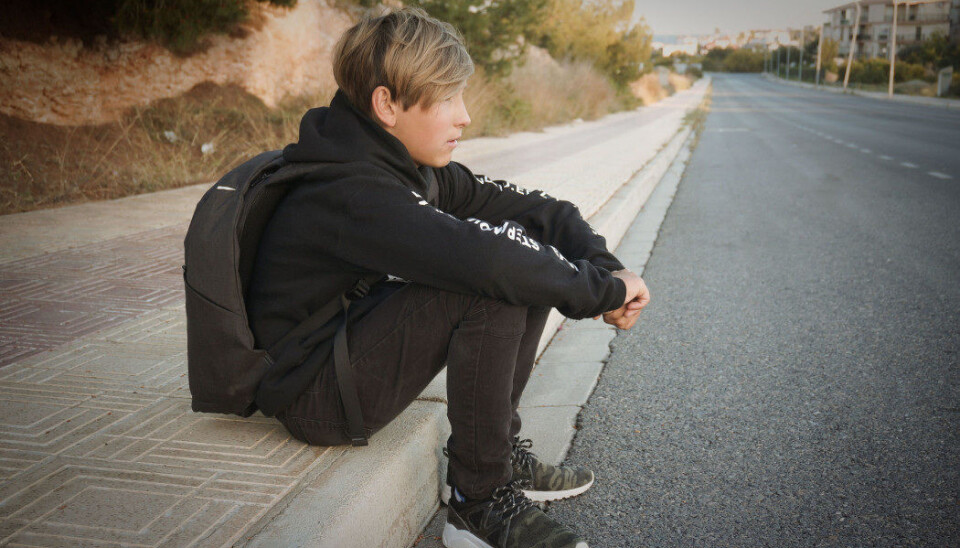
Children are ashamed of abuse they endured
Childhood violence has major consequences for the victims’ long-term health and living conditions. A new report shows that the shame many individuals feel causes them to withdraw and become lonely.
If you have been beaten or subjected to emotional or sexual abuse as a child, you naturally have nothing to be ashamed of.
Yet many victims of abuse feel shame nonetheless.
“Why a child would believe that others look down on him because he has been abused is hard to understand,” says Helene Flood Aakvaag. She is one of several researchers who recently released a new report from the Norwegian Centre for Violence and Traumatic Stress Studies (NKVTS).
Aakvaag believes their results show that there is still work to be done to ease the feelings of shame for individuals who are exposed to violence and abuse in society.
Long term consequences

The report provides new knowledge about how victims of childhood violence fare as adults.
The researchers followed young people who had been subjected to childhood violence over a period of several years and into early adulthood.
Their results confirm the sad fact that a tough childhood often leads to revictimization later, a fact that builds on previous Norwegian and international research.
One in three experience new violence
Researchers interviewed 1000 youth and young adults as part of the project. Participants were between 16 and 33 years old when first interviewed, and were also interviewed a few years later.
The participants included both individuals who had experienced childhood violence and others of the same sex and age who had not.
The researchers were surprised at the strong link between childhood violence and later revictimization.
After only eighteen months, one in three of the victims of childhood violence had been subjected to new violence by a new perpetrator.
Among participants who had not been exposed to violence as children, only one in ten experienced violence in the same time period.
Abuse increases risk of rape
All types of childhood violence increase the risk of experiencing new violence by another person in adulthood – even if the earlier violence was not to the victim’s own body.
In fact, if a person has witnessed a parent being murdered or has been subjected to emotional violence, that person is at much greater risk of being raped than other young people.
And for victims of multiple types of childhood violence, the risk of new violence increases even more.
Increased vulnerability
Why is it that childhood violence increases the risk of being revictimized as an adult?
This connection is not self-explanatory, and the researchers therefore devoted much of their analysis to understanding it better.
They found that individuals who experience childhood violence become vulnerable. This vulnerability means that they are more likely to encounter a situation where they experience new violence.
The study shows that victims of violence appear to become intoxicated more often. Frequent binge drinking often exposes people to situations where the risk of violence is great.
Those susceptible to violence are lonelier
A lot of research shows that good friends and close family relationships provide a buffer against everything that is difficult in life.
But violence destroys social relationships, too. Fewer children who’ve been subjected to abuse become part of social groups, according to the NKVTS research.
Not only do children exposed to violence receive fewer social supports, they use them less as well. Many of them withdraw in shame and try to hide what they’ve experienced.
“This is a coping strategy that has costs,” says Aakvaag. “The children get lonely. And loneliness, as we know, is linked to lots of health problems, both emotional and physical.”
A quarter of the young victims of violence had repeatedly injured themselves or tried to commit suicide.
Need to protect these youngsters better
The NKVTS researchers concluded by saying that these findings show that it is no easy task to leave behind a difficult childhood.
The study reveals the need to protect children at risk of abuse from further violence.
State Secretary Anne Bramo of the Norwegian Ministry of Health and Care Services was present during the press release. She believes that municipalities that have at-risk children need a strong nudge. Service providers need to strengthen their expertise on violence and assault and increase interdisciplinary work on prevention strategies.
“The sooner we get going, the better the prevention we’ll be able to provide,” she said.
Violence and assault are among the topics to be discussed in the new public health report that will be released around Easter, said Bramo.
----------





